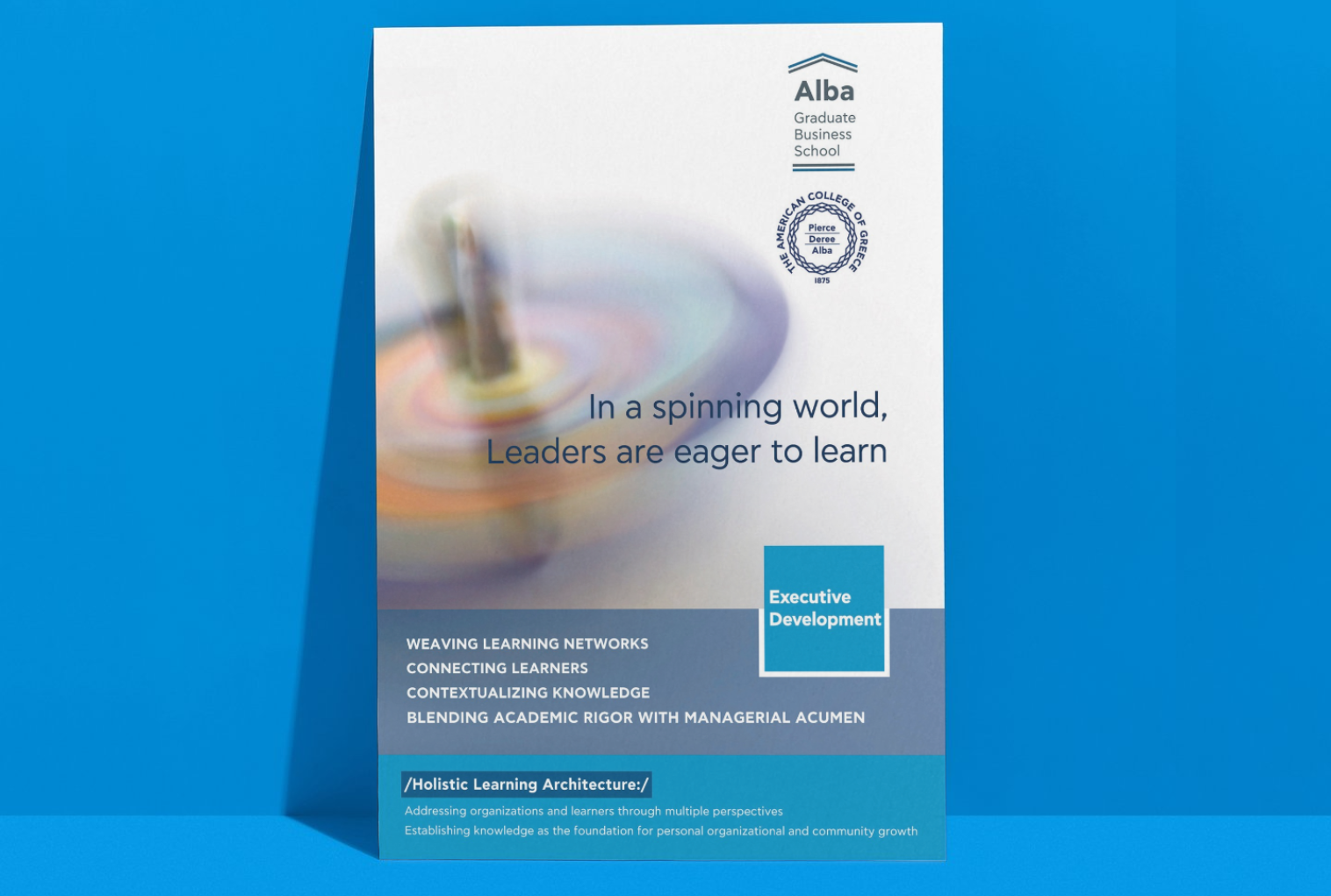Transform or Be Left Behind: Roche’s Playbook for Agility

On October 16, 2024, the SEV Center of Excellence in Creative Leadership kicked off its 2024-2025 Lead Creatively: Discussion Series with an event at the Alba Graduate Business School titled “Creating an Organization as a living organism: The case of Roche”. Kostas Kefalakis, Chief Transformation Officer at Roche Hellas, took the audience on a journey through Roche’s evolution from a traditional bureaucratic structure to an organization that functions like a living organism in constant pursuit of learning and adaptation. He shared the company’s experience of cultural transformation toward continuous innovation and trust-based governance.

Dora Economou, Director of Human Capital Affairs at SEV the Greek Federation of Enterprises, gave the opening remarks and highlighted the urgent need for organizations to adapt to today’s challenging business environment by shedding traditional structures in favor of more resilient models. She articulated that this transformation demands not just a shift in operating procedures but a fundamental reimagining of leadership, culture, and governance. “In a world where speed is a vital competitive advantage, the leaders of tomorrow must act as enablers and facilitators, cultivating trust and accountability at every level of their organizations.”

Dr. Kostas Axarloglou, Dean of Alba Association, took the stage and started with a rhetorical question: Is strategic agility merely a theoretical concept, or can it truly be realized in practice? He emphasized the importance of learning from experienced speakers, highlighting that today’s gathering is an opportunity to absorb Kefalakis’ valuable experience of cultural and agile transformation in action.

Before the event’s speaker came to the podium, Dr. Nikos Mylonopoulos, Director of the SEV Center of Excellence in Creative Leadership, posed another rhetorical question: If everybody prefers to work in a simpler, more collaborative and effective organization, why is the majority of businesses still bureaucratic and underwhelming? He then argued that mindset is more important that the tools in effecting change: “Tools and methodologies can only work when they are in the hands of individuals with the right mindset and behaviors.” He pointed out that the Center will continue exploring the theme of adaptive organizations and cultural transformation in future events.

Kostas Kefalakis began his presentation by outlining Frederic Laloux’s five phases of organizational evolution, from hierarchical and mechanistic entities to organic, self-managed, and purpose-driven collectives. Roche’s journey reflects this evolution, having successfully transitioned from a traditional, bureaucratic organization to one that pursues greater autonomy, accountability, and empowerment at every level. Companies today need to embrace a more dynamic and adaptive model. According to Kefalakis, when employees are trusted to make decisions and act autonomously, their sense of ownership promotes both innovation as well as superior legal and regulatory compliance.
Mr. Kefalakis highlighted Roche's aim to cultivate a culture of continuous innovation and decentralized leadership. By empowering employees at all levels to make decisions, the company fosters greater autonomy and accountability.

According to Kefalakis, the goal is to create a super-flat organization where teams are self-organizing and can learn and adapt at regular intervals, weekly at team level and every four months throughout the organization. This transformation goes beyond changing operational models; it also involves reimagining leadership roles. Agile leaders need to act as visionaries, architects, catalysts for change, and coaches, nurturing an environment where ideas can flourish. As he aptly put it, “Leaders today are no longer controllers; they must be enablers, guiding their teams through trust-based relationships.”
He concluded by sharing the tangible benefits of this approach, including a remarkable 42% increase in employee engagement over two years. Roche has redefined what leadership means, focusing on creating a safe space where employees feel responsible and comfortable speaking freely. Continuous coaching and open communication are key elements of this transformation. Ultimately, Kefalakis emphasized that while change must come from leaders at the top, true revolution occurs from the bottom. “We co-architect change with our teams, ensuring that everyone has a stake in our collective success,” he stated, underscoring the importance of collaboration in driving meaningful transformation.

The event wrapped up with a lively Q&A session where participants in the room and online explored what it takes to drive this kind of change.
The SEV Center of Excellence in Creative Leadership continues to provide a platform for these critical conversations, motivating organizations and educating their leaders as they pursue genuine and effective transformation.


The video recording of this event is available on YouTube and we encourage you to follow us on LinkedIn for upcoming events in our “Leading Creatively” Discussion Series!





